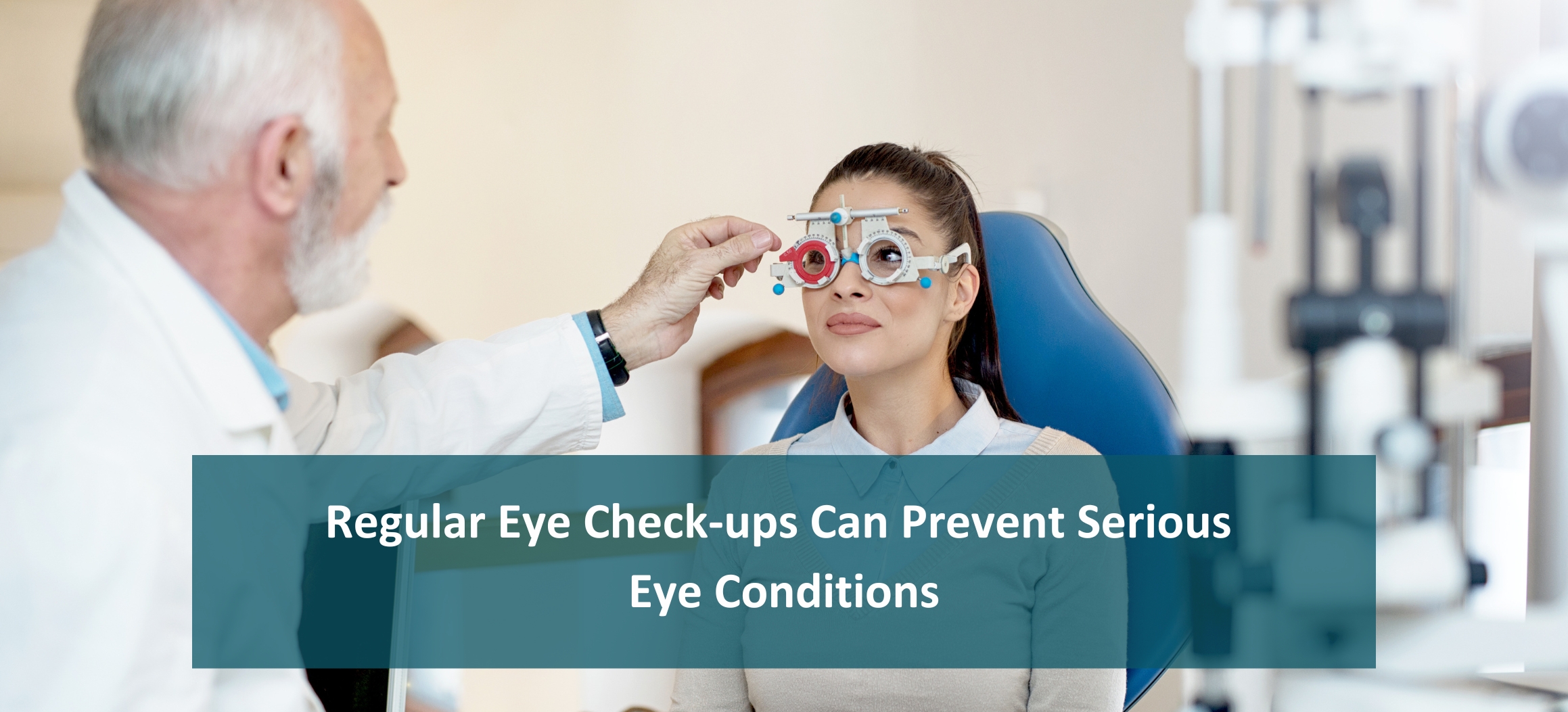
Vision is one of the most valuable assets, and regular eye check-ups are key to preserving it. Eye exams help detect early signs of serious eye conditions and other health issues that might otherwise go unnoticed. Through comprehensive eye exams, it is possible to ensure clear vision and maintain overall eye health. These eye check-ups go beyond a simple eye test; they play a crucial role in preventing long-term vision problems by including various eye vision tests.
Why Are Regular Eye Check-ups Important?
Regular eye check-ups significantly contribute to preventing serious eye conditions. A comprehensive eye exam involves more than just an eye test; it includes a thorough evaluation of overall eye health. Vision testing ensures that prescriptions are up to date, while more in-depth eye sight tests can detect issues such as glaucoma or cataracts. These examinations allow for the early detection of problems, which can be treated before they lead to vision loss. Eye check-ups are essential for individuals of all ages. Monitoring changes in eyesight through regular eye vision tests is particularly important for those at risk for conditions like diabetic retinopathy or age-related macular degeneration. By conducting eye sight tests during these target eye check-ups, doctors can intervene early and prevent more severe issues from developing.
Common Eye Conditions That Can Be Prevented with Early Detection
Several common eye conditions can be prevented or managed with early detection through regular eye check-ups:
- Glaucoma
Glaucoma often has no symptoms in its early stages. A comprehensive eye exam includes vision testing and eye pressure measurement, which can help detect glaucoma early.
- Cataracts
Cataracts cause cloudiness in the lens, affecting vision. Regular eye check-ups help detect cataracts early, allowing treatment before significant vision loss occurs.
- Age-Related Macular Degeneration (AMD)
AMD is a leading cause of vision loss in older adults. Early detection through routine eyesight tests and eye exams can help slow its progression.
- Diabetic Retinopathy
For those with diabetes, regular eye exams are critical for detecting diabetic retinopathy early. Comprehensive eye exams allow doctors to monitor changes in the retina’s blood vessels.
- Dry Eye Syndrome
Though not life-threatening, dry eye syndrome can cause discomfort. Regular target eye check-ups can help identify the cause and recommend treatment to manage symptoms.
- Refractive Errors (Myopia, Hyperopia, Astigmatism)
Refractive errors like myopia (nearsightedness), hyperopia (farsightedness), and astigmatism can be corrected with glasses or contact lenses. Regular eye check-ups and vision testing ensure your prescription is up to date.
How Often Should You Have an Eye Exam?
The frequency of eye exams depends on age, health, and risk factors. Most adults should have a comprehensive exam every two years. However, individuals with conditions like diabetes or a family history of eye diseases may need more frequent target eye check-ups. After the age of 60, annual eye exams are advised due to the increased risk of glaucoma, cataracts, and other conditions. Children should begin regular eye check-ups around the age of three or four to monitor visual development through early eye vision tests.
What to Expect During a Routine Eye Check-up?
During a routine eye check-up, several tests are conducted to evaluate overall eye health. These include vision testing to assess clarity, eye pressure measurement to screen for glaucoma, and pupil dilation to allow a detailed examination of the retina. Additionally, refraction tests help determine the need for corrective lenses. These eye sight tests and assessments ensure early detection of potential eye conditions and support maintaining optimal vision.
The Role of Eye Check-ups in Early Detection of Systemic Diseases
Regular eye check-ups can reveal more than just eye problems; they can also indicate systemic diseases. A comprehensive eye exam can detect signs of diabetes, high blood pressure, or even some cancers. For instance, changes in the blood vessels in the retina can signal early signs of diabetic retinopathy, while optic nerve swelling could indicate increased intracranial pressure. Routine target eye check-ups are essential for monitoring these health risks.
Signs You Should Schedule an Eye Check-up Immediately
Certain symptoms warrant an immediate target eye check-up. These include sudden changes in vision, such as blurriness or flashes of light, which may indicate retinal detachment. Eye pain, redness, or discharge should also prompt an immediate eye exam, as these could be signs of infection or more serious conditions. Regular target eye check-ups help maintain good eye health, but if sudden symptoms occur, it is important not to wait for the next scheduled appointment.
Tips for Maintaining Eye Health Between Check-ups
Maintaining good eye health between regular eye check-ups is essential. Wearing sunglasses with UV protection helps shield the eyes from harmful rays, while taking regular breaks from screens can reduce strain. Staying hydrated is crucial for preventing dry eye syndrome, and a diet rich in omega-3 fatty acids and vitamins supports overall eye health. Additionally, avoiding smoking is important, as it increases the risk of serious conditions like cataracts and age-related macular degeneration (AMD). By incorporating these habits into daily life, eye health can be preserved, reducing the need for future target eye check-ups.
Common Myths About Eye Check-ups Debunked
There are several common myths about eye check-ups that can lead to neglecting essential eye care. One myth is that eye exams are only necessary when vision problems are noticeable. In reality, many serious conditions like glaucoma develop without early symptoms and can only be detected through regular check-ups. Another misconception is that children don’t need eye exams if they aren’t complaining about their vision, but children may not realize they have issues. Lastly, some believe that wearing glasses weakens eyesight over time, which is false; glasses correct vision and do not cause further deterioration.
FAQ
Adults should have eye check-ups at least every two years, though individuals at higher risk for eye conditions may need more frequent target eye check-ups. After 60, annual eye exams are recommended.
Yes, a comprehensive eye exam can detect signs of systemic diseases such as diabetes. Changes in the retina can indicate diabetic retinopathy, allowing for early diagnosis.
Children should begin eye check-ups around the age of three or four to ensure early detection of any vision issues through eye vision tests.
Categories
Company
Media
Follow Us
© Copyright Biotech /Terms Of Use - Privacy Policy
Version 2_CT_1212222
